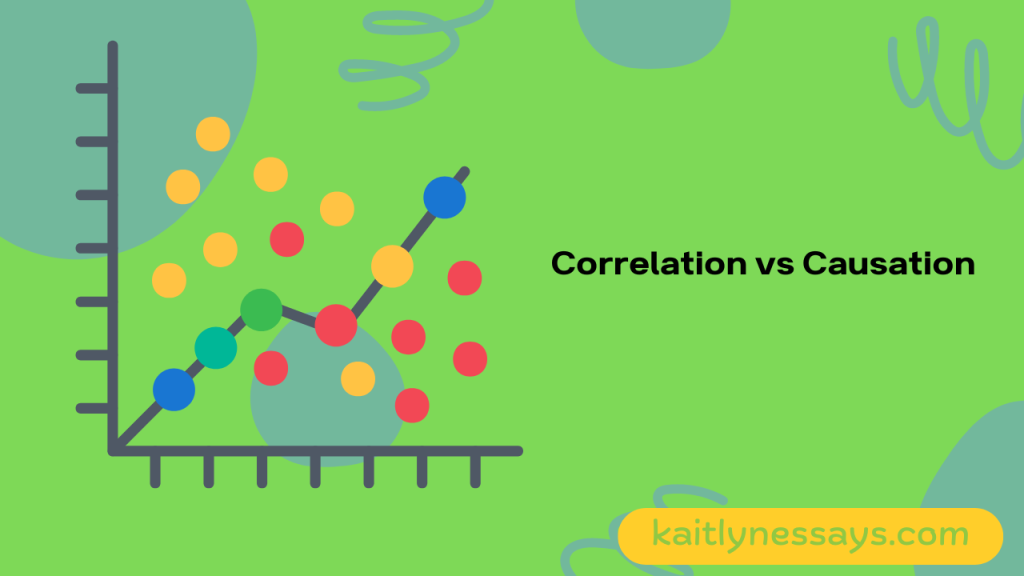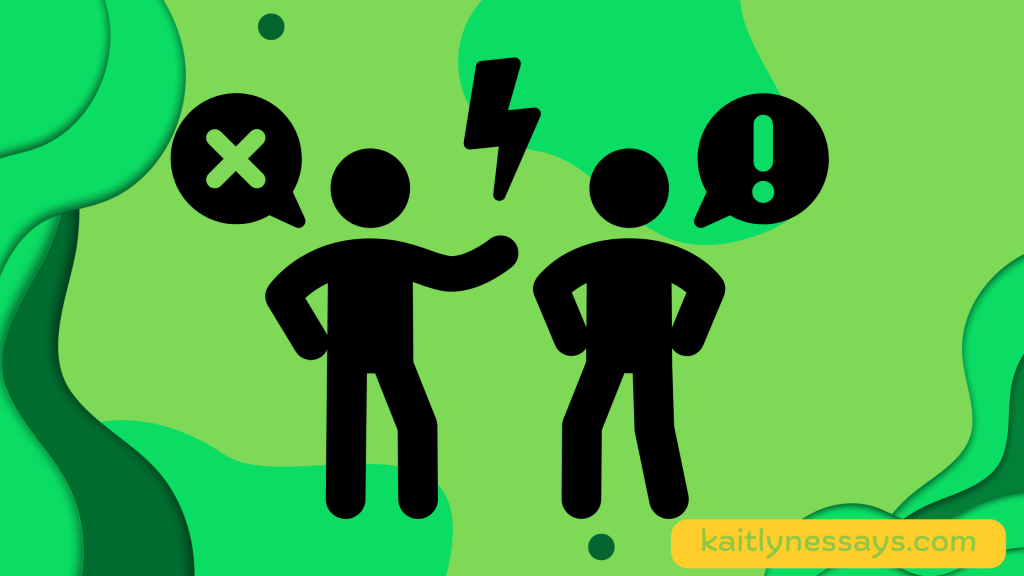
Correlation and causation are two concepts often encountered in research, statistics, and everyday discussions. While they may seem similar, they represent distinct relationships between variables and require careful consideration to avoid misinterpretation and erroneous conclusions. In this guide, we will examine the definitions of correlation and causation, explore their differences, examine common misconceptions, and discuss the implications for research and decision-making.
Defining Correlation and Causation
- Correlation:
- Correlation refers to a statistical relationship between two or more variables in which changes in one variable are associated with changes in another variable. It measures the strength and direction of the relationship between variables but does not imply causation. Correlation coefficients, such as Pearson’s r or Spearman’s rho, quantify the degree of association between variables.
- Causation:
- Causation, on the other hand, implies a direct cause-and-effect relationship between variables, where changes in one variable cause changes in another variable. Establishing causation requires more than just observing a relationship; it necessitates demonstrating a mechanism or pathway through which one variable influences the other.
Understanding the Differences
- Nature of Relationship:
- Correlation indicates the presence of a relationship between variables, but it does not specify the nature or direction of the relationship. Causation, however, implies a directional relationship in which changes in one variable lead to changes in another variable.
- Temporal Sequence:
- Causation requires a temporal sequence in which the cause precedes the effect. In contrast, correlation does not imply a temporal sequence and does not distinguish between predictor and outcome variables.
- Third Variables:
- Correlation can arise due to the influence of third variables, also known as confounding variables, that affect both the variables of interest. Causation, however, requires ruling out alternative explanations and demonstrating a direct mechanism of influence between variables.
Common Misconceptions

- Correlation Implies Causation:
- One common misconception is that correlation implies causation. While correlation indicates a relationship between variables, it does not establish causation. Spurious correlations, where two variables are associated by chance or due to the influence of third variables, can lead to erroneous conclusions.
- Reverse Causation:
- Another misconception is assuming reverse causation based on observed correlations. Reverse causation occurs when the direction of causality is reversed, leading to the mistaken belief that one variable causes the other when, in fact, the opposite is true.
Implications for Research and Decision-Making
- Research Design:
- In research, distinguishing between correlation and causation is essential for designing appropriate studies and drawing valid conclusions. Experimental designs, such as randomized controlled trials, are best suited for establishing causation by manipulating independent variables and observing their effects on dependent variables.
- Interpretation of Findings:
- Researchers must exercise caution when interpreting correlations to avoid making causal claims without sufficient evidence. Proper statistical analysis, consideration of alternative explanations, and replication of findings are necessary steps to ensure the validity and reliability of research conclusions.
- Policy and Practice:
- In policymaking and decision-making, understanding the distinction between correlation and causation is crucial for developing effective interventions and strategies. Relying solely on correlations without understanding underlying mechanisms can lead to ineffective or misguided policies.
Addressing Common Challenges

- Longitudinal Studies:
- Longitudinal studies, which track changes in variables over time, can help establish temporal sequence and identify potential causal relationships. By collecting data at multiple time points, researchers can better infer causality and rule out reverse causation.
- Controlled Experiments:
- Controlled experiments allow researchers to manipulate variables under controlled conditions to establish causation. Random assignment of participants to experimental and control groups helps minimize the influence of confounding variables and strengthens causal inference.
Conclusion
Understanding the distinctions between correlation and causation is essential for sound research, informed decision-making, and critical thinking. While correlation indicates a relationship between variables, causation implies a direct cause-and-effect relationship. Researchers and decision-makers must carefully evaluate evidence, consider alternative explanations, and use appropriate methods to establish causation when drawing conclusions or making policy recommendations. By recognizing the limitations of correlation and the requirements for causation, we can avoid common pitfalls, promote rigorous inquiry, and advance knowledge in diverse fields of study.
Feeling overwhelmed by the writing process? Let us be your guiding light. Our expertise lies in delivering impeccable academic writing services that elevate your work to new heights. From concept to completion, we’ll navigate the complexities of writing together, ensuring your ideas shine brightly. Empower your voice with our assistance today!
FAQs
What is correlation?
Correlation refers to a statistical measure that quantifies the degree to which two variables change together. It indicates the strength and direction of the relationship between variables but does not imply causation.
What is causation?
Causation refers to a relationship between variables where one variable directly influences or causes changes in another variable. Establishing causation requires evidence of a mechanism or pathway through which one variable affects the other.
What is the difference between correlation and causation?
Correlation describes the association between variables, while causation implies a direct cause-and-effect relationship. Correlation does not establish causation, as observed associations may be coincidental or influenced by other factors.
How can I distinguish between correlation and causation in data analysis?
Distinguishing between correlation and causation requires careful consideration of alternative explanations, temporal sequence, and the presence of third variables. Correlation analysis alone cannot establish causation, and additional evidence, such as experimental studies, may be needed.
Why is it important to understand the difference between correlation and causation?
Understanding the difference between correlation and causation is essential for sound research, informed decision-making, and critical thinking. Mistaking correlation for causation can lead to erroneous conclusions and ineffective strategies.
Can correlation imply causation?
While correlation does not imply causation, it can provide clues or suggest hypotheses for further investigation. Researchers must use additional evidence and rigorous methods to establish causation.
What are some common misconceptions about correlation and causation?
Common misconceptions include assuming that correlation implies causation, mistaking reverse causation, and overlooking the influence of third variables. It is important to critically evaluate evidence and consider alternative explanations.
How can researchers establish causation in their studies?
Researchers can establish causation through controlled experiments, longitudinal studies, and rigorous statistical analysis. Randomized controlled trials, in particular, allow researchers to manipulate variables and observe their effects on outcomes.
What are some challenges in establishing causation in research?
Challenges include the presence of confounding variables, reverse causation, ethical considerations in experimental studies, and limitations of observational data. Researchers must address these challenges to draw valid causal conclusions.
Where can I learn more about correlation, causation, and their implications?
You can learn more about correlation, causation, and their implications through academic textbooks, research articles, online courses, and educational resources provided by reputable institutions and organizations in statistics, research methods, and data analysis.
